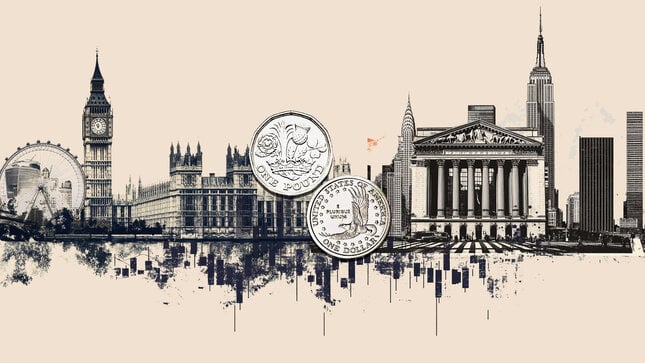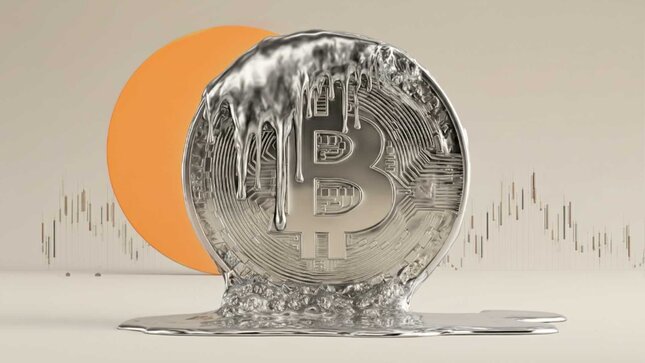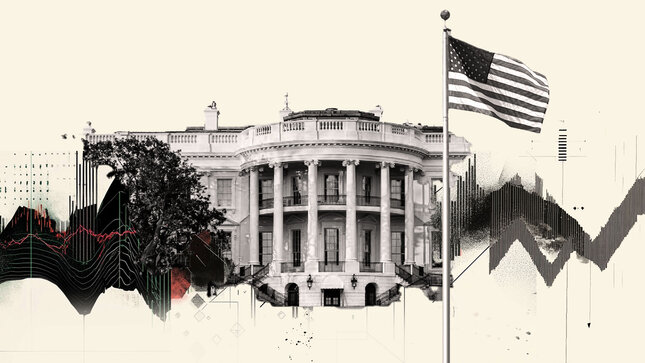When money becomes less valuable and costs rise, the money you have saved affords you exponentially less. In the short term, you may not notice the difference. According to the U.S. Bureau of Labor Statistics, $1 in June 2020 has an equivalent purchasing power to $1.18 as of June 2023.
That might not seem like a lot to some people, but in the long run, such inflation is highly destructive to the purchasing power of your money.
We have no way of telling the future with certainty, but we can reasonably discern that if a person is going to retire 30 or 40 years from now, $1 today is not likely to have even near the purchasing power in 2053 or 2063 that it does today. To avoid that potentially serious hardship, it is important to protect your wealth by hedging against inflation.
What is hedging against inflation?
Hedging against inflation, also referred to as inflation hedging, is a process of investing that aims to avoid loss of wealth or purchasing power at a later date.
There are numerous ways to hedge against inflation to better protect your wealth in the long term. Simply keeping your money in a traditional checking account or savings account is not going to protect your wealth. Finding ways to actively build a store of value that exceeds the real costs of inflation is the key to success. Hedging is a bit like insurance in that there are costs upfront and/or along the way, but if you ever need to make a claim on your insurance it is likely to financially save you.
So how can someone hedge against inflation? Here are four ideas.
1) Focus on your career growth
This may or may not entail obtaining a degree from a college or university. To be successful in life there is no strict requirement of getting a degree, but it may help depending on the career direction you decide to take. No matter if you get a degree or not, continuing to learn has a strong correlation with career growth.
By continuing to learn, whether it be learning in your field or another that you aspire to be in, you build skills that can help you throughout your career. This human capital element provides value for other people that you can profit from. Expanding your skills also allows you to transition into other careers more easily than someone who has limited skill mobility. This could come in handy if your job or career is no longer available.
Hedging against inflation by investing in your career growth may cost you upfront or throughout the process of personal development, but you will get a good return on investment in the long term. It will ensure you have a growing stream of income throughout your career that increases faster than the rate of inflation.
2) Build a diverse portfolio
Consider storing some of your money in a wide range of stocks and diverse investments. As the saying goes, “Don’t put all your eggs in one basket.” If one investment does poorly, at least you have your other investments to rely on.
Consider investing in:
-
Companies that have historically performed well.
-
Innovative companies leading their fields.
-
Cryptocurrencies like Bitcoin or Ethereum.
-
Stocks that offer recurring dividends.
Be cautious about storing the brunt of your money in just one of these investments. Instead, try spreading out your investments and keeping an eye on their performance at least quarterly. To get started, check out some investment apps like RobinHood, Webull, or Acorns.
3) Invest in precious metals
Precious metals such as gold, silver, platinum, and palladium tend to hold their value over the long term and can thus be used as a means of hedging against inflation. An ounce of gold in 1993 had a price of $391.75, in 2003 an ounce of gold was trading for $417.25, and an ounce of gold today is in the high $1900s. Gold has especially maintained its overall value throughout history, and it is likely to continue to do so.
Stefan Gleason, the President of Money Metals Exchange, recommends avoiding numismatic coins as an inflation hedge because collectible coins tend to be overpriced or too subjective in value. Instead, Gleason suggests hedging against inflation by investing in precious metal bullion, junk silver, ingots, or rounds because they have lower upfront costs and are valued for their weight in precious metal alone. Precious metals IRAs are also an option for hedging against inflation.
Avoid precious metals companies that have the following:
-
Celebrity endorsements.
-
Long shipping delays.
-
Poor ratings on BBB.
-
High-pressure sales tactics.
4) Buy real estate
Investing in real estate is a time-tested investment for a long-term hedge against inflation. Whether the real estate is for your primary home or a rental investment property, properties tend to increase in value at a faster rate than losses incurred by inflation. This is especially true because of the ability to put a relatively small amount down upfront for good debt which can help thrust a person financially forward.
When financing an investment in real estate, it puts someone else’s money to work for a property you maintain. As long as you maintain the property, the value is likely to increase over time and there will be significant returns to be gained once the property is sold.
Closing thoughts
Whether you want to invest in your career growth, a diverse portfolio of stocks and cryptocurrencies, precious metals, real estate, or a unique combination of the four, these are great ways to hedge against inflation. There are no guarantees about what is to come, but it is always better to be well-prepared to secure your wealth.
Money Metals Exchange and its staff do not act as personal investment advisors for any specific individual. Nor do we advocate the purchase or sale of any regulated security listed on any exchange for any specific individual. Readers and customers should be aware that, although our track record is excellent, investment markets have inherent risks and there can be no guarantee of future profits. Likewise, our past performance does not assure the same future. You are responsible for your investment decisions, and they should be made in consultation with your own advisors. By purchasing through Money Metals, you understand our company not responsible for any losses caused by your investment decisions, nor do we have any claim to any market gains you may enjoy. This Website is provided “as is,” and Money Metals disclaims all warranties (express or implied) and any and all responsibility or liability for the accuracy, legality, reliability, or availability of any content on the Website.
Editors’ Picks

EUR/USD: Yes, the US economy is resilient – No, that won’t save the US Dollar Premium
Some impressive US data should have resulted in a much stronger USD. Well, it didn’t happen. The EUR/USD pair closed a third consecutive week little changed, a handful of pips above the 1.1800 mark.

Gold: Metals remain vulnerable to broad market mood Premium
Gold (XAU/USD) started the week on a bullish note and climbed above $5,000 before declining sharply and erasing its weekly gains on Thursday, only to recover heading into the weekend.

GBP/USD: Pound Sterling remains below 1.3700 ahead of UK inflation test Premium
The Pound Sterling (GBP) failed to resist at higher levels against the US Dollar (USD), but buyers held their ground amid a US data-busy blockbuster week.

Bitcoin: BTC bears aren’t done yet
Bitcoin (BTC) price slips below $67,000 at the time of writing on Friday, remaining under pressure and extending losses of nearly 5% so far this week.

US Dollar: Big in Japan Premium
The US Dollar (USD) resumed its yearly downtrend this week, slipping back to two-week troughs just to bounce back a tad in the second half of the week.
RECOMMENDED LESSONS
Making money in forex is easy if you know how the bankers trade!
I’m often mystified in my educational forex articles why so many traders struggle to make consistent money out of forex trading. The answer has more to do with what they don’t know than what they do know. After working in investment banks for 20 years many of which were as a Chief trader its second knowledge how to extract cash out of the market.
5 Forex News Events You Need To Know
In the fast moving world of currency markets where huge moves can seemingly come from nowhere, it is extremely important for new traders to learn about the various economic indicators and forex news events and releases that shape the markets. Indeed, quickly getting a handle on which data to look out for, what it means, and how to trade it can see new traders quickly become far more profitable and sets up the road to long term success.
Top 10 Chart Patterns Every Trader Should Know
Chart patterns are one of the most effective trading tools for a trader. They are pure price-action, and form on the basis of underlying buying and selling pressure. Chart patterns have a proven track-record, and traders use them to identify continuation or reversal signals, to open positions and identify price targets.
7 Ways to Avoid Forex Scams
The forex industry is recently seeing more and more scams. Here are 7 ways to avoid losing your money in such scams: Forex scams are becoming frequent. Michael Greenberg reports on luxurious expenses, including a submarine bought from the money taken from forex traders. Here’s another report of a forex fraud. So, how can we avoid falling in such forex scams?
What Are the 10 Fatal Mistakes Traders Make
Trading is exciting. Trading is hard. Trading is extremely hard. Some say that it takes more than 10,000 hours to master. Others believe that trading is the way to quick riches. They might be both wrong. What is important to know that no matter how experienced you are, mistakes will be part of the trading process.
The challenge: Timing the market and trader psychology
Successful trading often comes down to timing – entering and exiting trades at the right moments. Yet timing the market is notoriously difficult, largely because human psychology can derail even the best plans. Two powerful emotions in particular – fear and greed – tend to drive trading decisions off course.


